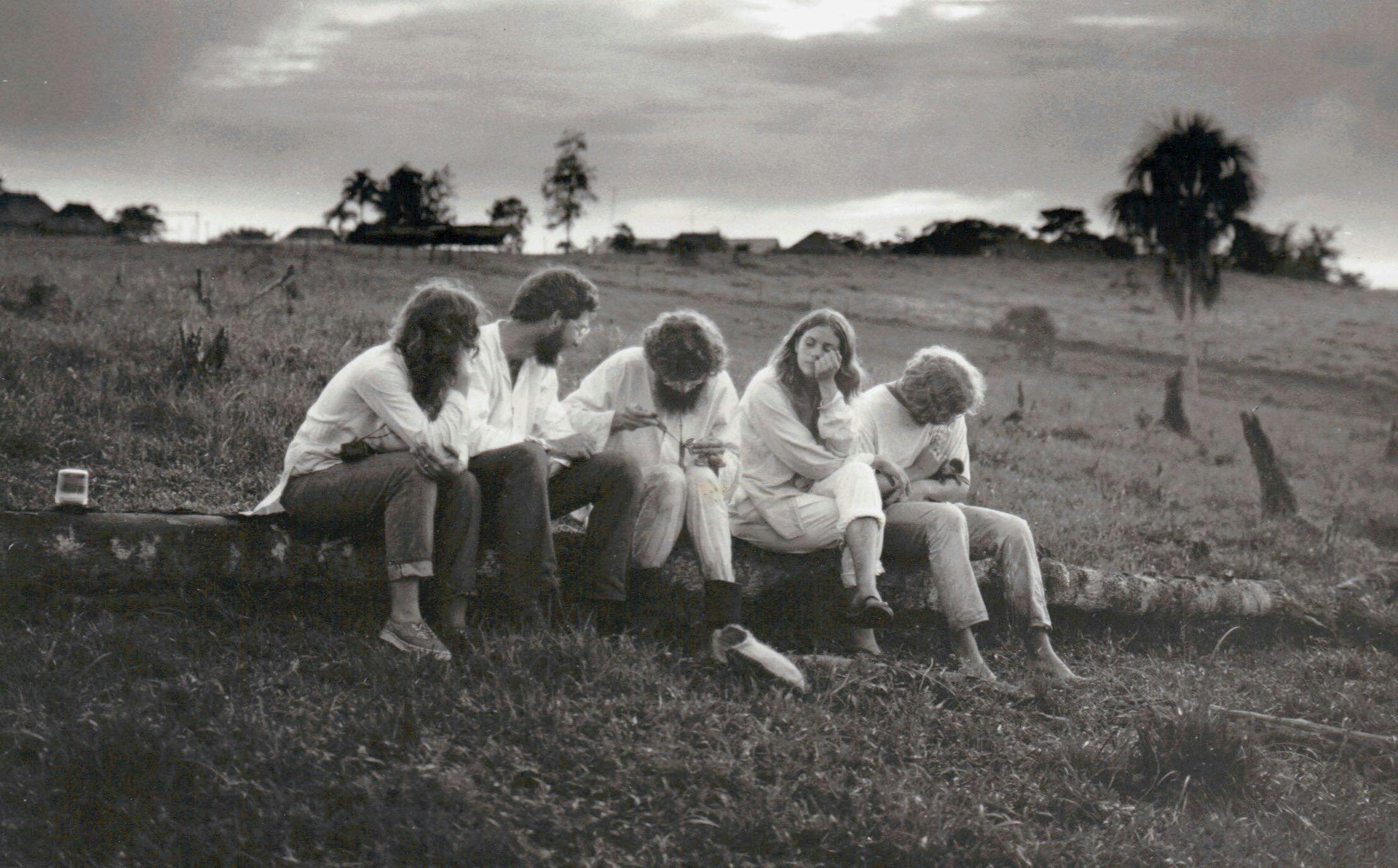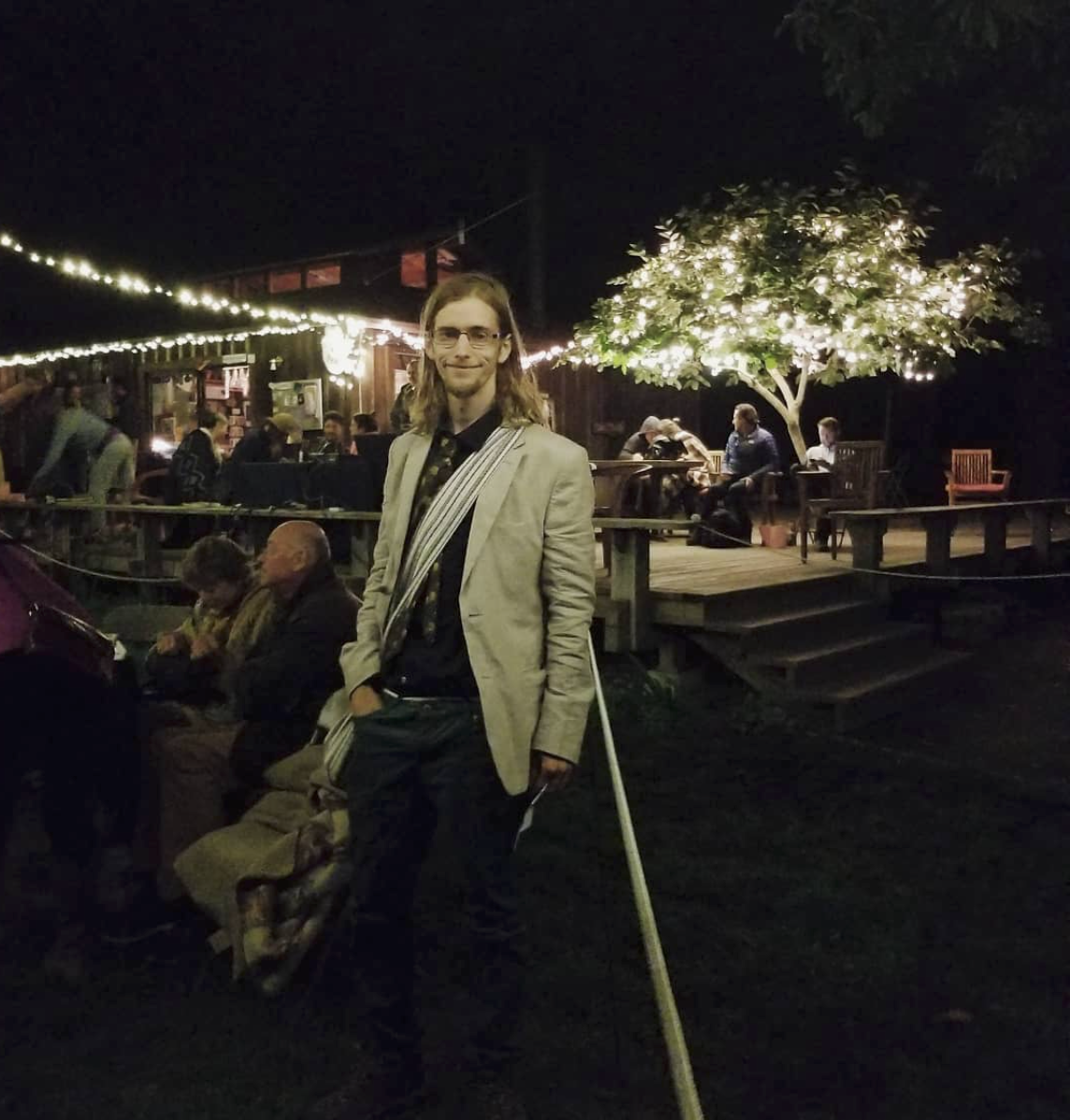Dennis McKenna's research has focused on the interdisciplinary study of Amazonian ethnopharmacology. He has conducted extensive ethnobotanical fieldwork in the Peruvian Amazon. His doctoral research (University of British Columbia, 1984) focused on the ethnopharmacology of ayahuasca and oo-koo-he, two tryptamine-based hallucinogens used by indigenous peoples in the Northwest Amazon. He is a founding board member of the Heffter Research Institute, and was a key organizer and participant in the Hoasca Project, the first biomedical investigation of ayahuasca. He is the younger brother of Terence McKenna. From 2000 to 2017, he taught courses on Ethnopharmacology and Plants in Human Affairs in the Center for Spirituality and Healing at the University of Minnesota. He coordinated ESPD50, the Ethnopharmacologic Search For Psychoactive Drugs, 50th Anniversary Symposium, and is the managing editor of the resulting publication. In 2019, in collaboration with colleagues, he incorporated a new non-profit, the McKenna Academy of Natural Philosophy. He emigrated to Canada from Minnesota state in the spring of 2019 together with his wife Sheila, and now resides in Abbotsford, B.C.
JB: How was your recent journey in Peru?
DM: It was very good, as most of them are. We had two back-to-back retreats in July. Two different groups --- one of them about fifteen people, the other one about eleven. The general sequence is, at least so far, always the same. We do three ceremonies at a ten day retreat. The first two or three days we just play tourism basically. Everybody gets to Cuzco and we play tourist for a few days and look at some of the major sites. But it's really important for group dynamics --- for friendship, so that by the time you get ready to do the ceremony, everybody is friends, everybody is bonded, and you're ready to go through this very intense experience.
JB: What are you most excited to talk about right now? The McKenna Academy for Natural Philosophy?
DM: The Academy, yes. It's not really separate from all the other things I'm excited about. I want to do things in South America. I want to work with sacred medicines down there. I want to do research there, and all of those opportunities. I'm not a business man but I've tried for a long time to create various businesses around this concept, and they've all failed for one reason or another; not entirely my fault. They failed because I'm not a business man. I don't know how to do this. I'm an academic at heart, I guess. So finally I just got the idea, well what I'm really interested in is the exploration of ideas. I want to create a place, like the Academy, that both geographically and sort of conceptually is a place where people can come and bring their best ideas; have it be a place of learning, that's the whole idea of the academy, but not a conventional place of learning; a place where you could actually integrate plant medicines into the curriculum. And what I call the Academy is a catalytic nexus for the transformation of global consciousness, which sounds pompous I guess, a little arrogant, but this is what's necessary if we're going to wake up. As a species, we're faced with an enormous global crisis, and rather than stepping up to the plate and acknowledging that we have a problem and then discussing what could be done to solve the problem, most governments, politicians, by and large, people are ignoring it. It's a huge denial. A few years ago it was possible to maybe delude yourself that there wasn't a problem. Well now it's in our face, you know. The hottest summers, the most violent hurricanes, all this--I mean, it is happening. The global ecosystem is getting destabilized and so there needs to be a catalyst to shift global consciousness. The basic premise is that until you wake up to the problem, nobody's going to do anything about the problem.
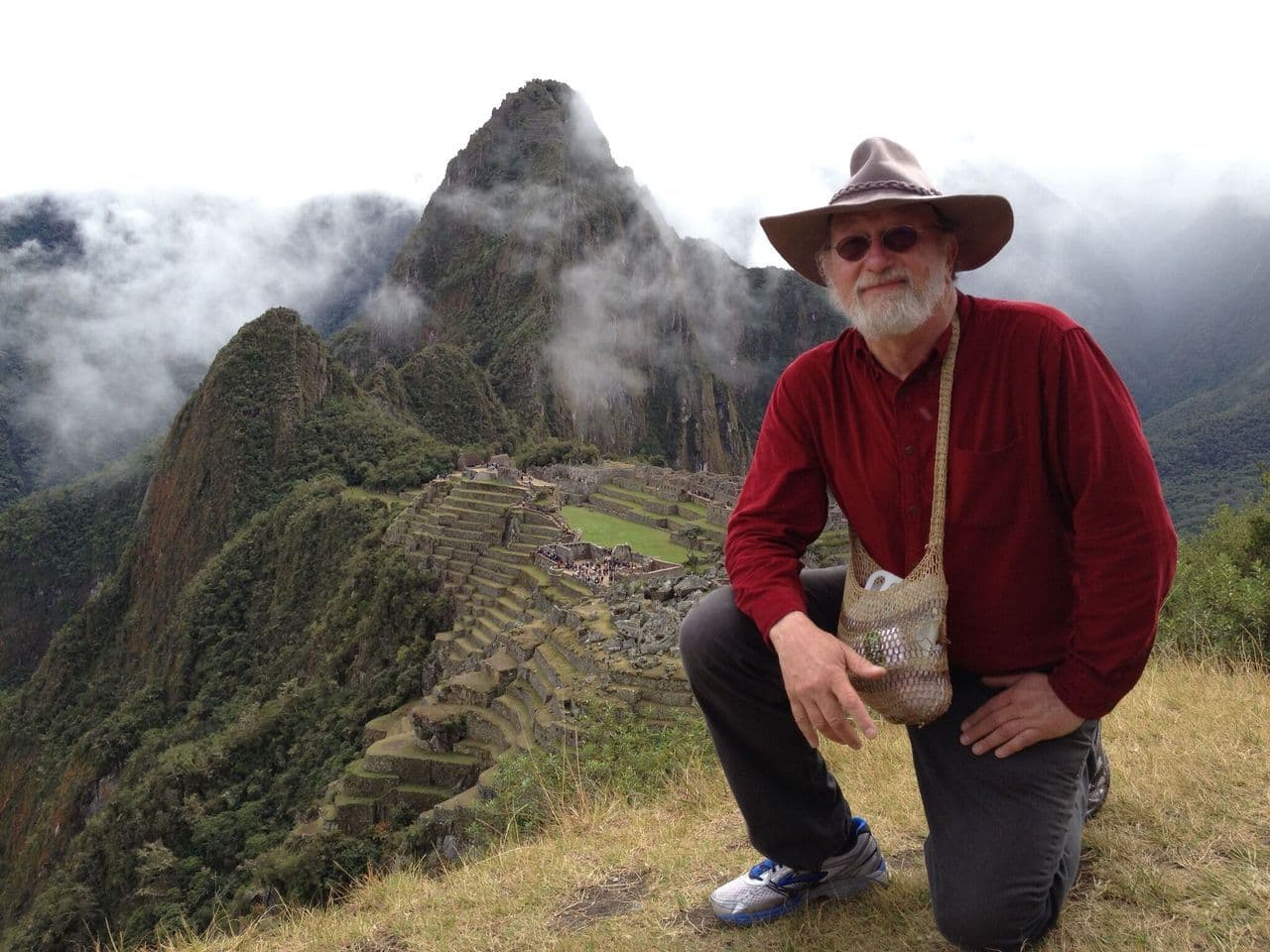
These plant medicines, for whatever reason, seem to be intrinsic to this wake up process. Many people, through their psychedelic experiences, are coming away with a message. It's not scientific, but I go so far as to say that the message comes from Gaia, that these plants are ambassadors from the collective community of sentient species on the planet; they're trying to send us a message which is that we really have to wake up and acknowledge that we have to change radically and we have to do it quickly. There's not much time left. So how do we do that? There are many possible solutions, and a lot of people are concerned with that question: What can I do? Well, I'm a teacher, I'm an academician, I can create a place where people can come and get the message, and collaborate on possible solutions, and organize timely conferences, utilize worldwide web technology to broadcast the message, and just basically make the Academy a place where all good ideas are entertained and discussed in respectful ways. We try and create consensus, and collaboration, and symbiosis after that. I think it's important for the Academy to be in South America because that's where the heart of the plant medicine traditions are. The legal frameworks are much looser. You know, ayahuasca has been declared a national patrimony by Peru, so they're very friendly to this. There's nothing radical about having an Academy there, where the study of plant medicines and their uses for beneficial purposes is in no way illegal or even controversial. That's how it is. You couldn't get away with this at any conventional university without going through a lot of regulatory hoops. So the core idea of the Academy is that it will be a mystery school. It will be the first mystery school to exist in the Western world since Eleusis, you know. The first psychedelic mystery school since Eleusis was sacked and burned in 396 A.D. That was the end of the mystery school tradition, as Christianity became the dominant religion. Unfortunately Christianity, in the western world, is a big part of the problem for numerous reasons. I can go on rants about the dangers of religion all day, but basically I think christianity discourages the valuation of nature. Sort of built into the philosophy is the idea that nature is not important, because you know, it exists for humans to dominate, to use, but not respect. That mindset, you're now seeing the consequences of. The sort of anti-biological attitude that's built into the Christian perspective. So we need to get past that.
As the plants always emphasize to me, you know, when I take ayahausca and these other things, but ayahuasca primarily, one of the take home lessons is that you have to remember that we do not run the biosphere. We're not in control of it, you know. It's not for us. We're not the ones keeping things stable. And in fact, we're a big reason that the biosphere is in such a crisis --- maybe the only reason. The biosphere would be much better off if we weren't around, you know. But here we are. And since we're part of this problematic species it would be nice if we could figure out a way to collaborate with the community of living things and find a way forward for the future. That may involve at some point leaving the planet, you know, and maybe that's part of the human destiny, but I don't want to think that in order to leave the planet we have to wreck the planet. It may be human destiny to leave the planet. We should not leave a toxic waste dump behind, and we don't have to if we get clear about a few things.
The Academy will be a number of things. I want to be able to of course continue the work that we're doing with the sacred medicines, particularly ayahuasca. Hold retreats. When you see what people go through when they come to these retreats, it's very interesting to see this human dynamic. People are really being helped a lot. Some are there because they have specific issues that they want to work with: PTSD, depression, or addictions and that sort of thing. We're not making any claim that what we offer can cure those things--it doesn't have that therapeutic spin. What we do say is that it's a place you can come where you may well find the opportunity to heal yourself. It's not that the medicines heal you or that the retreats heal you, it's about creating an opportunity for you to find your own power to heal yourself. Or simply, maybe you don't need healing. You don't have to be sick to benefit from one of these retreats because it can also improve your life and perspective on life as a well person.
I'd also like to use the Academy as a platform to hold these impactful events, to invite high profile people to present on timely topics, and again--contribute to a shift in attitude on a global scale. We'll bring people like Michael Pollan and Graham Hancock and such people to these things. They'll be high profile events. Each conference of that magnitude will have fall out from it, you know, good consequences, information and media products that can continue to propagate the message, whether books or videos or podcasts or whatever. That's part of it. Then there's an educational component to it, being an academy. Perhaps with Wade Davis' help we might be able to get affiliation or accreditation for some programs that we could offer and that might be associated with UBC. There'd be aspects of them taught here, and then what Wade and I have sort of discussed a little bit is that we could do a world class program in ethnopharmacology and teach a few weeks here, and then maybe the last three weeks or a month or something, we could do in South America. Follow up the classroom work with the field work. Why do that? For one thing, it's an important topic and there really is no program in the world that's calling itself ethnopharmacology. I know there's one university, maybe in the UK, that offers something along those lines. There needs to be. A lot of people are interested in this. The topic is important because the people that have the plant knowledge are disappearing, or they're culturally impacted and their environments are culturally impacted, so the genetic resources are under siege as well. The problem is that these things are going to disappear; the cultures and the knowledge and the plants, unless we do something about it. Even if you just look at it from a cold-hearted capitalist perspective, depleting the rainforest--cutting down the rainforest to put in cattle ranches and soybean farms and oil palm plantations is the least effective way, the most short-sighted way, to maximize the value of that resource. The rainforest is worth much more if we don't touch it. The term is non-timber forest products. You know, you can sustainably extract non-timber forest products out of the rainforest and you don't have to deplete the resource. A lot of things like fruits obviously, and these sorts of things, can just be harvested without cutting down the plants, or intangible non-timber forest products are things like new molecules. The whole bioprospecting approach is that you comb this biodiversity for novel molecular structures that might be developed into new medicines and then that interfaces with a lot of controversial things because you have to develop ways that the biodiversity can be investigated, new medicines can be developed, but not just handed over to corporations. You have to have some kind of safeguards in place so they just don't come in and take everything and say thank you very much and go make billion dollar drugs out of them. There are trillions of dollars to be made in the discovery of new drugs, but this shift in attitude is required so that the indigenous people, who have been the stewards of this knowledge for so long, get a piece of the action. Even a small piece of a million dollar drug is still quite a lot. It's a very hard quantity to estimate, but there are studies that have tried to estimate: what is the value of undiscovered pharmaceuticals in the rainforest? Well, how many are there and what is each one worth? You can make reasonable assumptions. In a lot of ways it's hand waving and smoke and mirrors, but there was an interesting article published a long time ago, in 1995, by Michael Balick who was the head of the economic botany program at New York University. He tried to estimate, in effect, what is the Amazon worth if you just look at it economically? Back in those days anyways, through various lines of reasoning, he came up with a figure: 330 blockbuster pharmaceuticals waiting to be discovered in the rainforest that, after the cost of development, marketing and all that, each one would be worth like a hundred million dollars. Well that was over twenty years ago, so the same is still true but each one of those is worth potentially at least a billion dollars. For a blockbuster drug in the pharmaceutical industry, a billion dollars is respectable, but not necessarily spectacular. If you want to ask what the pharmaceutical value of the Amazon is, it might be 330 billion dollars. That's just the discovery of new compounds that can be commercially developed. What that doesn't factor in is all the intangibles and the contribution that the rainforest ecology makes to global climate stability, and all of these things. As a carbon sink for carbon dioxide, for example, it's one of the biggest on the planet. So there are all those things as well.
What I would like to see eventually is if you could get governments and corporations and NGO's and all the players in this arena to come together and create a collaboration to set large tracks of rainforest aside and just say it will not be touched, but it will be available for bioprospecting, and just throw it open. Ideally there are different ways that you can get a value out of that. One would be simply if you identify new molecules with interesting activities. If you can synthesize them, that's probably better because you're not depleting the resource. You still get the idea from the rainforest. You get the idea from the natural source. You still owe something. Many things might be discovered which are not so easy to synthesize; then you have to find a way to produce those sustainably, which may be just growing the crops and so on, but there are also a lot of new high tech, bio-techy ways to produce secondary compounds. You can characterize the genome, the gene clusters, for biosynthesis, translate those into yeasts, or whatever. There are many approaches to it. The idea is that you're preserving this repository of molecular biodiversity, which is worth saving. It will keep lots of people busy for years trying to sort that out.
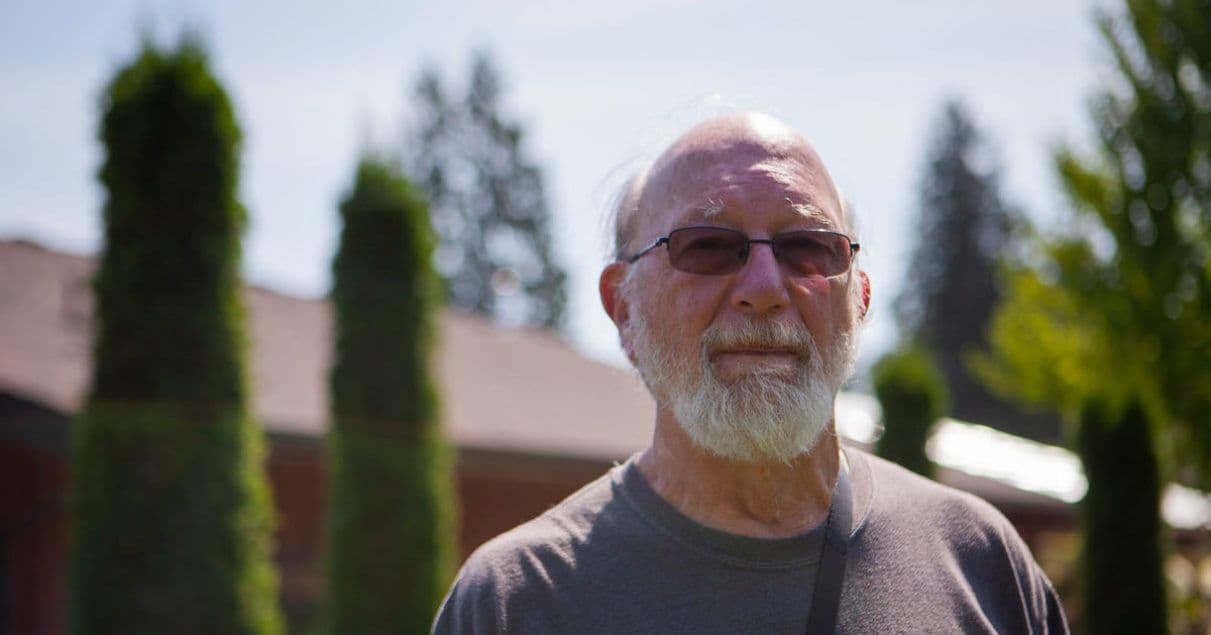
JB: What you're saying about how the psychedelic plants and fungi teach about the real value of nature seems very much related to what your brother Terence said about the poetic aspect of consciousness and how it gives rise to ecological awareness.
DM: Yes, I guess poetic is a good term for it. Yeah.
JB: It seems like he was onto something about how poetic novelty actually creates meaningful language in the first place--
DM: Right.
JB: --then over time language becomes habitual. Everyday language is "fossil poetry", as Emerson called it.
DM: Mhmm.
JB: Terence seemed to be suggesting that to keep language alive, we need poetic insight to keep it from becoming entirely habitual. It seems like ethnobotany and ethnopharmacology are perfect examples of that nexus between culture and nature, or habit and novelty---
DM: Yeah ... Yeah!
JB: ---where meaning itself is synthesized?
DM: Definitely. Yeah. And that's the nexus where the change takes place. The corporate capitalist western model is that nature is not intelligent; at base that it's not intelligent --- that it's just a bunch of resources for us to discover and exploit. We're seeing the consequences of that model, and right now we're paying the price because we never really understood our proper relationship with nature. That's something indigenous people have always understood, but we have forgotten it and we have to relearn it.
We want to live in partnership with nature and so we have to find ways to nurture it and use it without destroying it. I think that the psychedelics and especially ayahuasca and mushrooms are like catalysts for that understanding. The idea of the Academy is really that it can become a nexus for this kind of learning. Everyone who comes there takes their ideas and goes out and proliferates it to their friends, and so it's like mycelium, you know --- pretty soon these things are popping up all over the place. The first one might be the McKenna Academy, in the Sacred Valley, but eventually there might be these kinds of mystery schools everywhere, or at least in medicine-friendly countries. I think a lot of countries are going to become medicine-friendly. It seems to be happening. The western world would have been much different if Christianity had not suppressed these mystery schools. They were nature based, they were matriarchal, they did not deny the fundamental nature of biology; they celebrated it. What does Christianity hate most? What do they most want to suppress? Sex, drugs, and rock 'n' roll. These things are fundamental to life! So what's with that? It should be celebrated.
JB: After the 1960's, it seems our society just put psychedelics away and tried to forget about them. What about now?
DM: That's right. However, what's different now is that we've had over forty, closer to fifty years to kind of sort this out. When the psychedelics emerged into the western world in the 60s, the major catalyst was Timothy Leary, which in some ways was unfortunate but if it hadn't been him it would've been somebody else. We had no cultural context for psychedelics. This LSD burst into the scene like a bomb going off. Society was not prepared to deal with this. And then, as for Tim, I don't think he set out to become a demagogue of psychedelics, but there's a certain personality that maybe he had that started sort of pushing him in that direction and before he knew it he was riding the tiger and he didn't really know how to get off it. I think he started out as a fairly serious scientist and ended up being what he is known for. Of course, even in the cultural context of that era, the media always jumps on everything and distorts everything. What's different now is a few things. We have matured as a society. Psychedelics have been around for fifty years as part of the society, though of course they've been around thousands of years in indigenous societies. We've woken up to the fact that there is a long indigenous tradition of the use of these things, and those societies have done just fine. They're not a threat. So we can learn from them, and we can appreciate this pre-historical and non-historical context in which psychedelics have always existed. We can learn from that how to incorporate them. You know, we have to invent our own traditions. We can't whole-hog adopt these shamanic practices. Plenty of people try to do that. I think that's misunderstanding. I can't become Yanomami, or Witoto. That's not what we want to do, but we can learn from them how to use them in the context of their own society, and that's happened. There are a lot of people who know a lot about psychedelics and I think it has created a situation where we can have conversations about it that don't immediately degenerate into hysteria and false assumptions and accusations and all that. We can look at it a little more objectively. People are just a little more chill about it than they were before, and a lot of that, I think, is because the people of my age who were part of the counterculture, or at least grew up in that time, are now professors and administrators, and they're kind of higher up the hierarchy now. They're not so afraid of these things. And then you combine that with the fact that there's good science emerging about the benefits of these things; so we can have a much more nuanced conversation rather than, 'Oh god these things are bad and they're going to drive you crazy and make you jump off buildings'. I mean we're way past that part.
So what I want to do with the Academy is have it be a training ground in a certain way, a place where people from many walks of life can come, learn how to use these things professionally and effectively. The obvious application is therapies, and we'd like to have programs specifically for therapists. I'd also like to have events that explore, say, psychedelics as problem solving tools; get the top ten cosmologists in the world to come and take ayahuasca and mix it up and share their ideas and that sort of thing.
JB: How can people keep up with what's happening with the Academy?
DM: The website is up at www.McKenna.Academy. People can sign up for the email mailing list there.
JB: Do you think that the message from the plants that you've shared, "you monkeys aren't running things", is hard for people to digest?
DM: Well yeah, because we're control freaks. But I think it's something we have to wake up to, that we're not running the thing. And if we are running it, we're doing a piss-poor job. We're totally mismanaging.
But we can't run it. Nature is demonstrating this to us every day now, how little control we do have, and how we've got to change things. First, you have to create a consensus that there needs to be a change. We're not even there yet. Unfortunately, the people with the political power and the corporate power don't even want to hear about it. They deny that there is any kind of problem. This is very dismaying. What's it going to take for people to realize what's happening? And you know, we don't have the luxury of thirty years anymore. It used to be that people would say we have thirty years to figure this out. Maybe we have ten years.
JB: That's a hard thing to comprehend. It would take a lot of ecological understanding to try to predict these things, right? The average person doesn't have that, so it just breaks down into tribal arguments about climate change and humanity's role, or lack of role in it.
Yes and, sure, there's always going to be fluctuations in climate, weather, and this sort of thing, but if you look at long term trends, which we've been tracking long enough, we know just by looking at the carbon dioxide load in the atmosphere. We passed the critical threshold a couple of years ago. Now what are we up to? 540 parts per million. That's higher than has ever existed in the history of life on Earth. In terms of our carbon emissions--I don't know how accurate this is, but I saw something recently that said volcanoes are one of the biggest contributors of carbon dioxide to the atmosphere. Our output is now sixty times what volcanoes put into the atmosphere. This is way out of whack. The plants, because they fix carbon, are trying to keep up, but they only have so much elasticity in that system, and that's my concern. The biosphere, nature, is based on homeostasis and equilibrium. These positive and negative feedback loops are what tend to keep things in balance, but at a certain point you reach a tipping point. You push the envelope so much that the envelope snaps. You can't reestablish. Then you get these positive feedback loops that are reinforcing the destabilizing influence. So you can look at the possibility of runaway greenhouse effects and that sort of thing, and we're right on the cusp of that happening. At a certain point we won't be able to stop it. And then what? Then it becomes kind of dire.
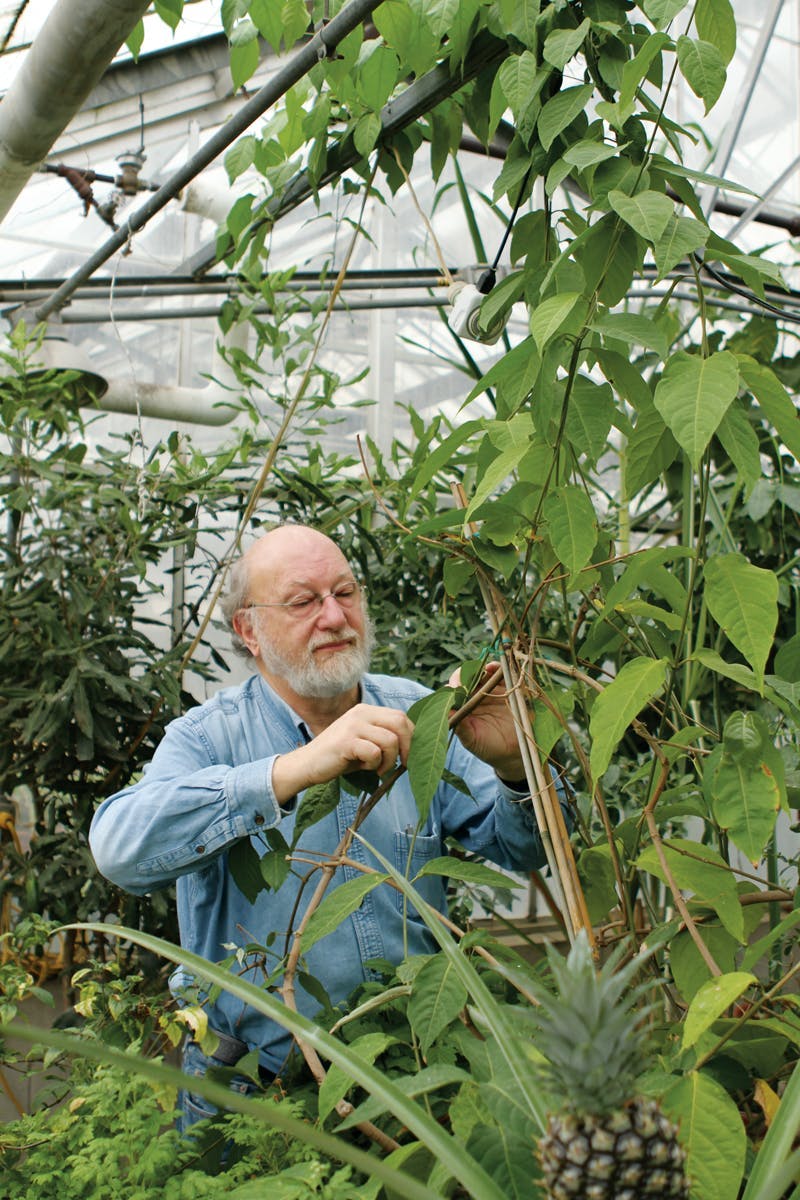
JB: That does sound dire. It is encouraging though, to see how many people are showing up at conferences, discussing ecological concerns and consciousness change.
DM: It is encouraging that at least the conversation is on the table. A lot of people are talking about it, so that's encouraging, but at the speed at which politics move and laws move, and all that, it's still much too slow. I mean you just keep plugging, and you hope. You just keep plugging because, what else can you do? But it's hard to see how any legislation, or anything like that that governments might come up with, are going to be adequate; they'll be bandaids, like they've been up until now. There's no global authority that can impose this stuff, although sometimes you kind of wish there was, but you know, the kind of world leaders that would be able to do that are people like Trump, you know, and they have no wisdom. What we lack are wise leaders. We just don't have that. So, leaders are not respected and probably shouldn't be, because they're lame.
JB: I recall a recording in which your brother Terence quoted William Blake: "the truth cannot be told so as to be understood without being believed." This is a hopeful proposition, considering what you're doing with the Academy.
An example is what you were saying about carbon emissions and the state of the atmosphere. To understand it you have to already have some understanding of what carbon is, and what photosynthesis is and... you know.
DM: Right. People don't even get that.
JB: Finding a common language is a big challenge.
DM: We need to make a big change.
JB: I've heard it said that we don't grow plants, we create the conditions for them to grow. Do you think that's how it is with cultural change too?
DM: That's right.
JB: That's what it sounds like the Academy will be doing: rather than thinking first of changing the world, thinking first of creating the right conditions for the world to change.
DM: Right, exactly. We become an incubator for the ideas, and then let the ideas flourish, cross-pollinate, and synergize, and just let that happen by having the wisdom to not try to control the process, except insofar as it moves it forward. So, we'll see.
NB This interview has been lightly edited for clarity and brevity.
